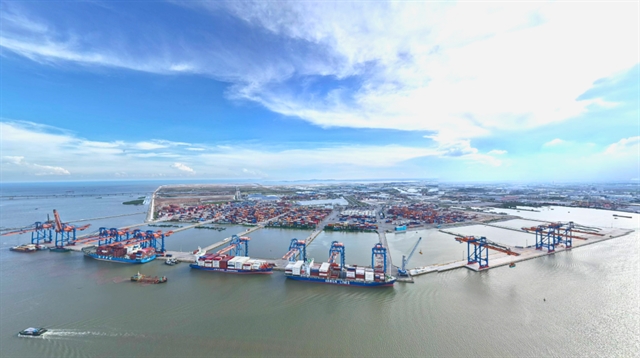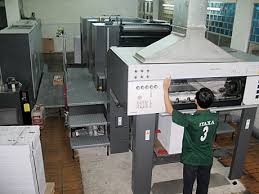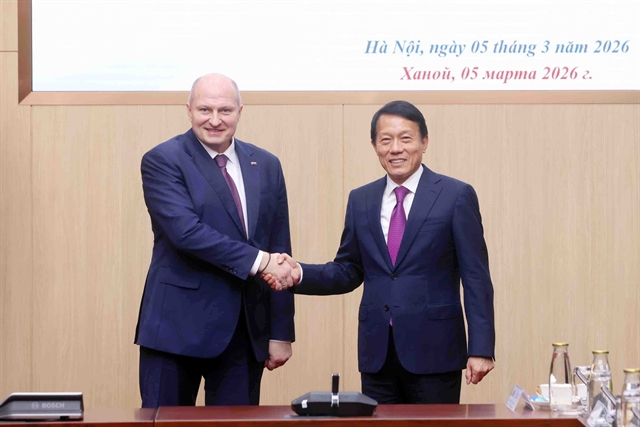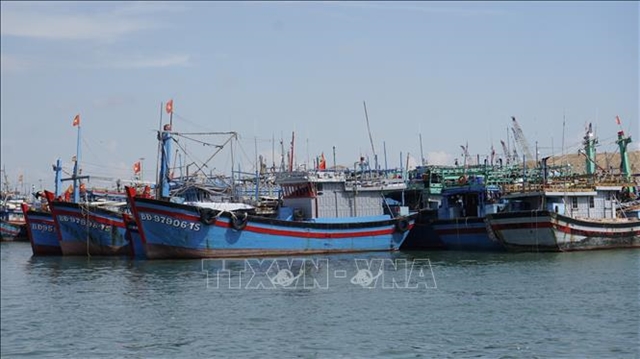 Economy
Economy


|
| At a printing house. The first HCM City printing exhibition was held at Tân Bình District Sports and Cultural Centre from September 18 to 21. — Photo courtesy of ITAXA |
HCM CITY — Local printing enterprises have been urged to develop long-term investment plans, adopt comprehensive management systems and build better business strategies to meet large export orders and stay afloat amid fierce competition, according to the Việt Nam Printing Association.
Ngô Anh Tuấn, the association’s vice president, said that total revenue of domestic printing enterprises accounted for 1 per cent of GDP or about US$2 billion a year in the last three years. Adding revenue from the FDI sector, total revenue would be US$4 billion.
HCM City’s printing industry accounted for more than 65 per cent of the total revenue, he said. “This is an industry with high growth potential, offering great profits.”
Từ Lương, deputy director of the city's Department of Information and Communication, said the rapid shift from traditional printing technology to digital had created a revolution in the printing industry, increasing its competitiveness in domestic and export markets.
The city’s printing industry met most of the domestic printing demand and had undertaken many outsourcing orders that require high-level, diverse and complex printing techniques for foreign firms, he said.
Tuấn said: “In the Southeast Asia region, the Việt Nam printing industry is in the top two. In the domestic market, local printing houses have certain inferiority compared to Chinese and Japanese ones in terms of production management level, but not in technology and technical level.”
Tuấn said the printing industry was facing challenges amid the increasing number of FDI enterprises participating in the market. “Recently, we received more than 10 foreign business delegates who came to seek investment opportunities here.”
To maintain and promote the growth momentum, and to avoid losing market share in their home market, local printing enterprises need to create long-term investment plans, adopt comprehensive management systems, and improve business strategies, according to Tuấn.
In addition, to expand the market, printing enterprises also need to be more professional in working with foreign companies, meet international quality standards, and ensure that production processes do not adversely affect the environment. "These are not small challenges for businesses in particular and the city’s printing industry in general,” he said.
Due to US-China trade tensions, many large corporations around the world had shifted their huge printing outsourcing orders to Việt Nam, offering a great opportunity for local firms, he said.
But with their small scale, many Vietnamese enterprises found it difficult to process large orders, he said, adding that local firms needed to further enhance linkages to enable them to undertake large orders and compete with FDI firms.
Lương said to help businesses in the field access the latest printing technologies and equipment in the world market, as well as promote their products and enhance linkages with their counterparts, his department in collaboration with the HCM City Union of Business Associations and HCM City Printing Association organised an HCM City printing exhibition from September 18 to 21 at the Tân Bình District Sports and Cultural Centre.
The exhibition featured about 165 booths displaying machinery and equipment for silkscreen printing, textile printing, footwear printing, labeling, packaging, electronic printing, printing materials and supplies, and printing products. — VNS




